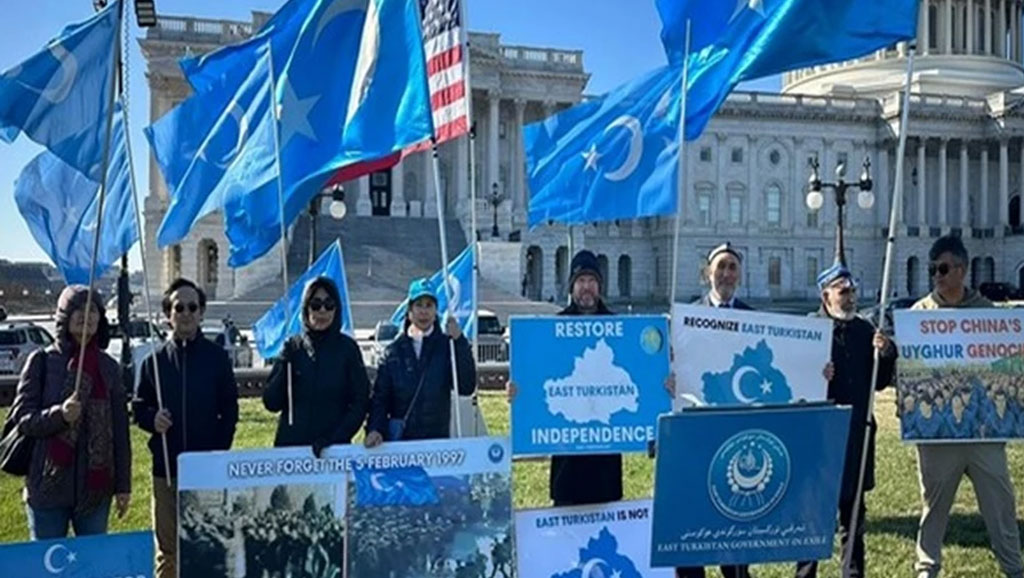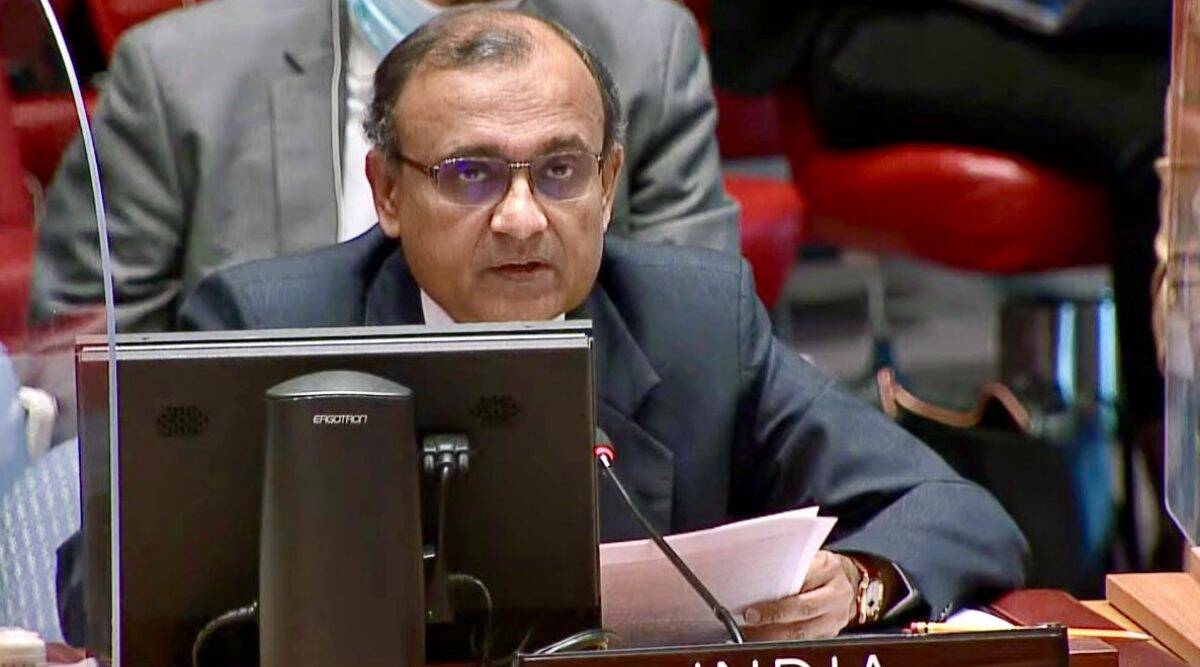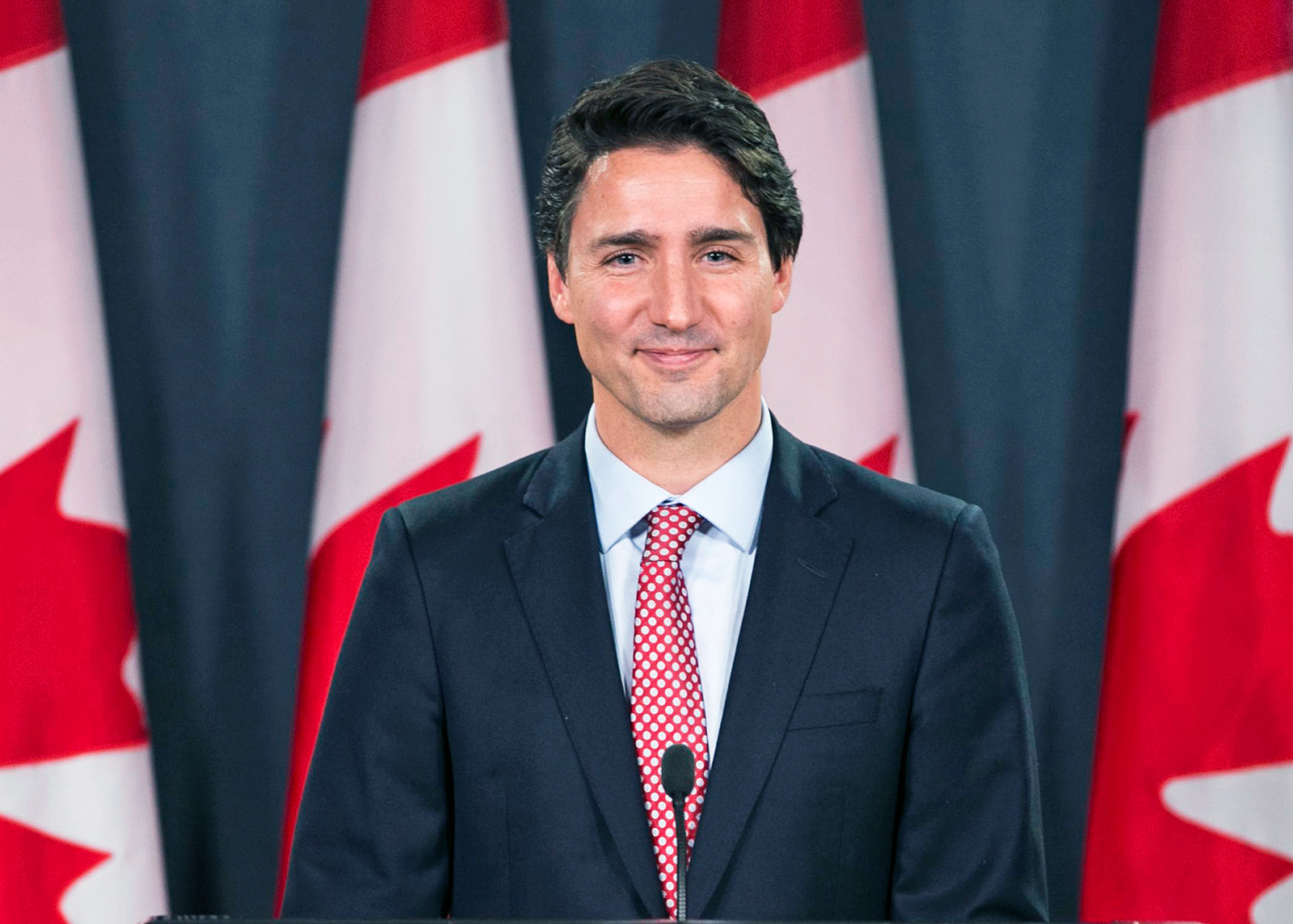Over 60 Uyghur organisations urge US Congress to recognise China's East Turkistan as occupied country
Spearheaded by the East Turkistan Government in Exile (ETGE), a Washington, DC-based parliamentary government in exile, this coalition represents Uyghurs, Kazakhs, and other native peoples of East Turkistan.
In a historic and unified effort, 61 organisations across the global East Turkistani and Uyghur diaspora have come together to address the United States Congress with an urgent plea to recognize their homeland, East Turkistan, where their peoples are suffering an ongoing genocidal occupation under China, East Turkistan National Movement said in a press release. Spearheaded by the East Turkistan Government in Exile (ETGE), a Washington, DC-based parliamentary government in exile, this coalition represents Uyghurs, Kazakhs, and other native peoples of East Turkistan.
They applaud the passage with broad bipartisan support of the Uyghur Policy Act through the House of Representatives, and urge the Senate to follow suit. Such actions demonstrate the continued leadership of the United States in supporting the peoples of East Turkistan, and they call on Congressional leaders to build on that leadership with sustained and increasing actions, the release also said. Just as the United States pioneered support for the people of Tibet, just as the United States stands firm with the people of Taiwan, they ask the United States to stand with the peoples of East Turkistan and resist the People's Republic of China and the Chinese Communist Party's (CCP) nationalism, expansionism, and human rights atrocities.
They are calling on the US to recognise their homeland, East Turkistan, as an occupied country, highlighting the significant historical context that on October 12, 1949, the PRC's People's Liberation Army invaded East Turkistan and overthrew the independent East Turkistan Republic on December 22, 1949. In October 1955, the People's Republic of China designated much of East Turkistan as the "Xinjiang Uyghur Autonomous Region." "Xinjiang" means "the colony" or "new territory" in the Mandarin language. The open letter to Congress outlines the grave situation in East Turkistan under the People's Republic of China's occupation, highlighting ongoing genocide, crimes against humanity, and the systematic attempt to erase the identity and existence of the East Turkistani people. The letter acknowledges the US Congress's support thus far but stresses that more decisive action is needed to address the root cause of these atrocities: the colonization and occupation of East Turkistan by China.
The United Nations' Human Rights Council's recent Universal Periodic Review of China demonstrated the divide between countries willing to call out human rights atrocities and countries coerced into complicity with those atrocities. The gravest of these atrocities occur daily in East Turkistan, and throughout China and Central Asia with the forced displacement and genocide of the native peoples of East Turkistan. The ETGE has documented these atrocities in four separate filings with the International Criminal Court, it added. Mamtimin Ala, President of the ETGE, emphasized the urgency of the situation, stating, "The recognition of East Turkistan as an occupied country by the U.S. Congress would be a significant step towards restoring the rights and freedoms of our people. It is not just a matter of political recognition but a moral imperative to stand against ongoing genocide at the hands of the Chinese Communist Party led Chinese state and affirm the right to external self-determination for the oppressed peoples of East Turkistan."
Salih Hudayar, Foreign Minister of the ETGE, added, "The United States has always been a beacon of freedom and justice on the global stage. By recognizing East Turkistan's status as an occupied nation and upgrading legislative actions, the US can lead the international community in a meaningful stand against China's relentless campaign of erasure and oppression." This collective call to action underscores the critical need for the U.S. and the international community to confront the reality of China's colonization, genocide, and occupation of East Turkistan. The signatories express their readiness to provide further information and assistance to advance the cause of justice, human rights, and dignity for East Turkistan.
The East Turkistan Government in Exile urges the US Congress to heed this call and take a stand for freedom, justice, and the right to external self-determination for the people of East Turkistan.
Source: ANI
23 Feb 2024,12:44
















 Live Tv
Live Tv


